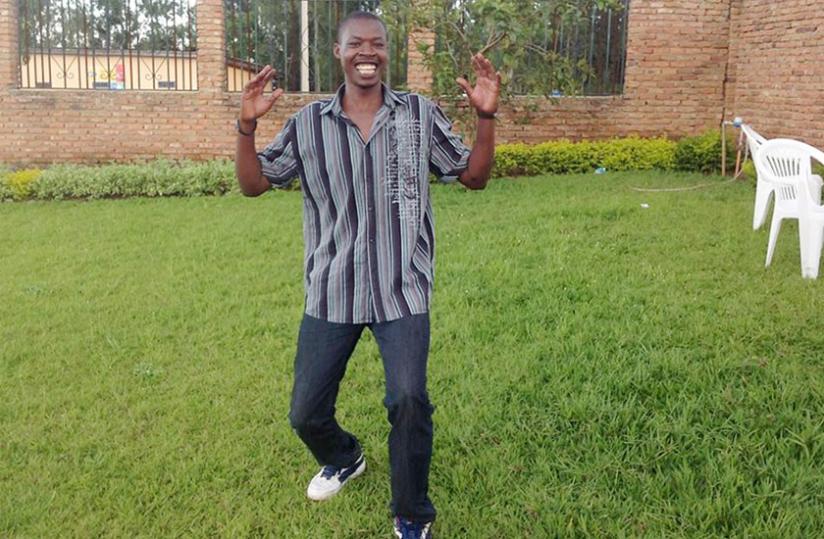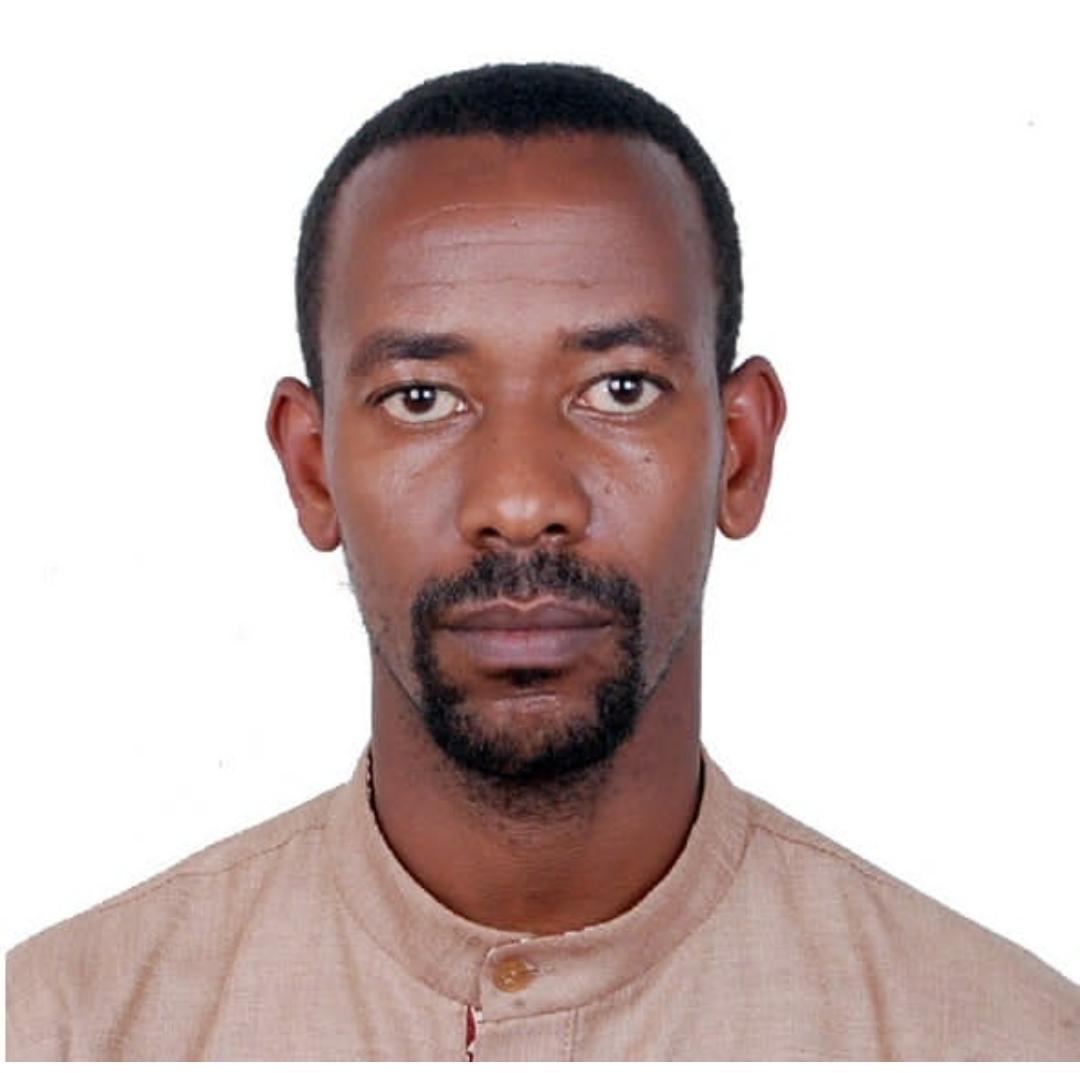Alphonse Nshimiyimana, 25, found himself in an orphanage at the age of five and had no idea why he didn't have a family. At the age of nine, he fled the orphanage and went on streets.


Alphonse Nshimiyimana, 25, found himself in an orphanage at the age of five and had no idea why he didn’t have a family. At the age of nine, he fled the orphanage and went on streets.
He started his new life on the streets sleeping in trenches, dripping whenever it rained and most times involved in violent fights with different people.
Nshimiyimana lived every single day as his last since he wasn’t sure of either getting food or whether he would not be beaten to death by fellow street children.
"My only way to survive was to rob from people; a few times I get away with it but most times I could get caught and beaten. Then I started sniffing [wood] glue to assume false confidence that I was stronger and as a soothing element,” says Nshimiyimana, who has now made a year off drugs.
Sniffing glue was no longer working for him as he grew on the streets, and he suddenly started smoking marijuana, an addiction that enslaved him for 10 years.
"Every time I smoked marijuana and sniffed glue, I became brave; I was more like a ghost that escaped from the cemetery. I was fighting theft and murderous thoughts,” he says as he narrates the events that led his life as a drug addict for a decade.
"On several occasions, I was arrested and sometimes even charged and later released but I never gave up on my habits. The first time I was arrested, I was taken to a juvenile centre for four months and when I got out, I went back to the streets,” he said.
In total, Nshimiyimana spent about two years in jail for theft.
On one such occasion, he broke into someone’s house and was arrested and almost dumped into a pit-latrine.
"There was a woman cooking outside a certain home in Gatsata, I tiptoed, bypassed her and entered the house.
Inside, there was a man sleeping in the bedroom and I sneaked in and stole money that was on the table. Just as I was getting out, this man caught me. He took me to a pit-latrine, held me upside down and wanted to dump me inside,” said Nshimiyimana.
"I survived because my head couldn’t go through the hole of the latrine. I made noise and neighbours came. Although I survived, I was given a beating of my life.”
Undeterred
However, even such a brush with death did not stop Nshimiyimana; he went on to steal Rwf40,000 from a passenger in Nyabugogo taxi park.
"By then, I wasn’t only consuming marijuana, but also selling it. I decided to go to Tanzania and purchase in bulk. On my way, I near-drowned in Akagera River,” he said.
Nshimiyimana’s turning point came when he voluntarily joined Teen Challenge, a Christian programme helping youth and adults battling with addiction problems.
After joining the programme, Nshimiyimana was subjected to a yearlong residential drug rehab programme.Last week, he became one of the pioneer granduates of the programme.
"I have no plans of getting back to the streets, I am going to look for a job as a mechanic as well as trying getting as many people off drugs as possible,” he said.
Yet Nshimiyimana’s story is not the scariest one among the beneficiaries of Teen Challenge Programme.
Guillain Serugo, 25, dropped out of school in his first year at university due to drugs. At one point, he challenged his father to a fist fight.
Serugo was taken at Teens Challenge by his father after getting him out of jail.
"I believed that what I was doing was the right thing and thought that everyone was wrong. That is how bad drugs can make someone. I hated everyone, including my siblings and my parents, I lost respect for them,” said Serugo.
His father, Ananias Ngana, says Teen Challenge was the last option he had to try for his son who he had decided not to give up on.
"Our entire family was broken by what my son was doing, he was involved with everything bad,” Ngana said.
The two former drug addicts witnessed violence of all kinds. Today, their transformation sounds like a movie script. They are buoyant, self-possessed and full of hope.
About Teen Challenge
Teen Challenge is the world’s largest drug and alcohol treatment programme, with more than 200 locations worldwide. Addicts check into Teen Challenge centres from hospitals and jails. Some are students, others gang members. Some have tried a number of treatments to overcome their addictions but failed.
In Rwanda, the programme was started by Willy Rumenera, last year, after learning that there were many people in prisons over drug related crimes.
"I thought I had a responsibility of addressing this problem from the roots rather than dealing with its consequences. I was told of Teen Challenge by a friend and I proceeded to establish contacts with Teen Challenge,” said Rumenera.
What sets Teen Challenge apart from most other rehabilitation programmes is its unabashed Christian focus.According to Rumenera, Teen Challenge helps beneficiaries fashion a life plan, not a treatment plan.
"People check into Teen Challenge mostly because they habitually made bad decisions. By teaching them to walk in honesty and integrity, we help them learn how to make the right decisions,” added Rumenera.
Beneficiaries of the programme learn skills like self-management; do chores in the kitchen and laundry, and learn to minister to others through community service.
All attend chapel and pray daily, learning "biblical principles” for virtuous living.
Research confirms Teen Challenge’s remarkable record of success.
According to Time magazine, "studies have found that Teen Challenge has a 70 per cent success rate for those who finish the programme, far better than secular treatments.”
A study conducted by Northwestern University in the US found that "ex-abusers seem to lead normal lives after Teen Challenge, holding down full-time jobs and, apparently, rarely needing to return to treatment.”
Paradoxically, the very thing that underlines Teen Challenge’s success–its religious focus–creates problems in raising funds. Teen Challenge Rwanda gets its financing from well-wishers.
Drug abuse ranks among the major crimes reported in the last quarter of 2014, according to latest Police report.
edwin.musoni@newtimes.co.rw


